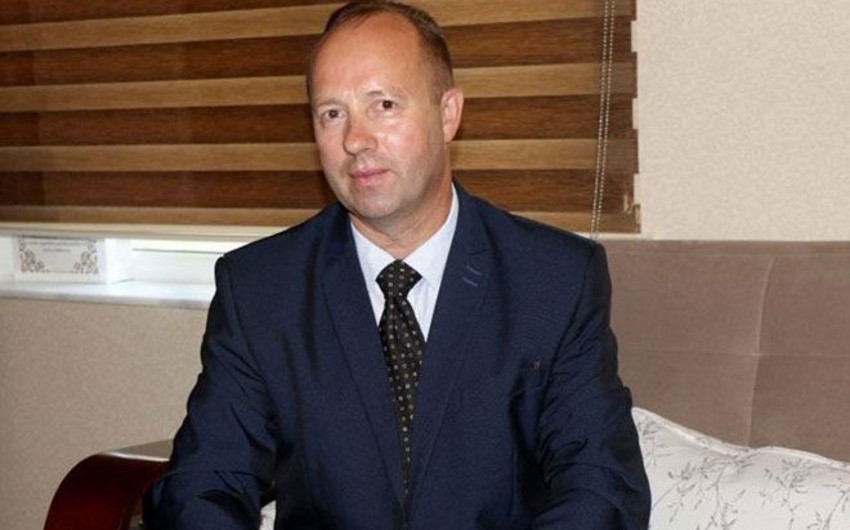Justice for Khojaly will be partially restored when all the surviving Khojaly residents will be able to return home, when they will get back what was taken away, when they will be able to visit the cemetery with their relatives, Lithuanian military journalist Ricardas Lapaitis said in an interview with Report.
“As long as this is not the case, we must fight for this justice,” he said, adding that the main thing that the Khojaly people need today is to know that they are not alone and that they are supported by people of different nationalities and religions: “To know that this horror, what they experienced worries not only them, but the whole world, so that they feel international support. It is also important that the Khojaly residents, just like all Karabakh refugees, return to their homes. As a military journalist, all these 30 years, I have always been with them. I have always told the truth about Khojaly - this is my duty, which I fulfill and will continue to do so.”
The journalist noted that in general, he was struck by the indifference of the international community, because it didn’t react to the tragedy.
“Today, first of all, we must say that it was planned in advance, the professional 366th regiment participated in it, which was at that time in Khankendi, where most of the ensigns and officers were of Armenian nationality. The regiment was influenced by Armenian nationalists and earned money, shelling Azerbaijani villages and cities, and the commander of the third battalion, 366th regiment Yevgeniy Nabokikh himself participated in the massacre. They wanted to show by this act that there would be no more peace talks and they were capable of killing civilians: women, children, the elderly, kill all Azerbaijanis,” he said.
Speaking about his memories, the journalist added that it is very difficult for him to choose one, the cruellest picture of that day: “The whole tragedy left a very big imprint on me personally and changed my whole life. When similar tragedies occur today, it’s impossible to remain indifferent to them, regardless of nationality or religion. The deaths of Khojaly residents were violent, they didn’t just die from bullets, they were pursued, finished off, had their ears, nose, fingers cut, scalped, women and girls were raped. There were even cases when scalps were taken while still alive, as evidenced by forensic medical examinations.”
“I was particularly struck by the cruelty with which the children were killed. Some had bullet wounds, and stab wounds, and some had burn marks. Later, it became clear to me why some had burn marks: many corpses were collected together and set on fire, they were trying to hide their crimes against humanity. They wanted to burn alive even those who remained in Khojaly, about 150-200 people could not leave the burning city, remaining in the basements. Many were killed there, captured or doused with gasoline to burn alive,” Lapaitis said.
He noted that today Armenian politicians and nationalists say that a free corridor was allegedly left that day: “If the corridor had been actually free, people would have reached Aghdam in five hours. How many people would have died if there had been a free corridor?”
The Lithuanian military journalist also said a few words about the film about the Khojaly tragedy - Endless Corridor, which was filmed by an international team from 14 countries, and Aleksandras Brokas was the main director.
“The film was shot according to my diaries, where I am one of the main characters. The story of each character in the film is very difficult, terrible and unique. What we, military journalists, saw is a minuscule next to what they experienced. The film was seen in more than 100 countries and more than half a billion viewers of the planet. As you know, the film has received many awards at many international film festivals,” he concluded.


 https://static.report.az/photo/dc8720de-4514-3bc9-b4ff-688266717225.jpg
https://static.report.az/photo/dc8720de-4514-3bc9-b4ff-688266717225.jpg

